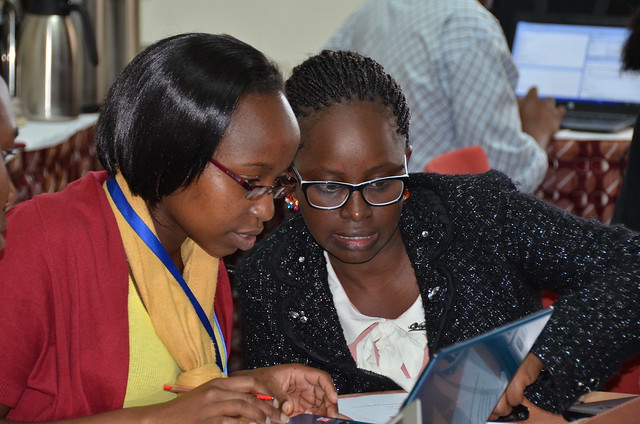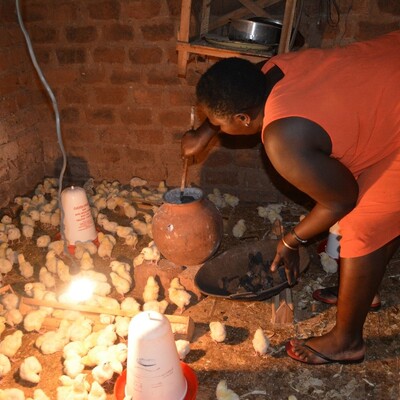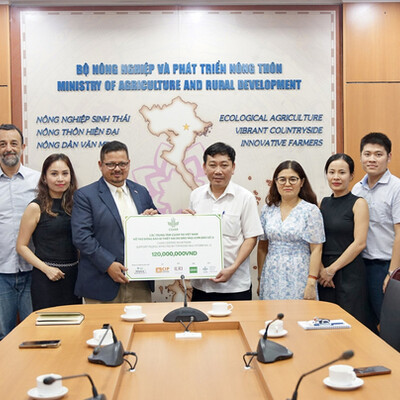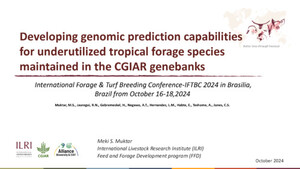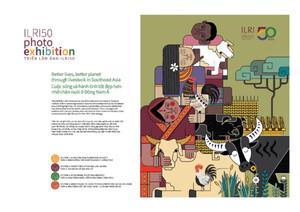
Role of ‘critical research friends’ in mentoring emerging researchers: Reflections from a mentorship workshop
ILRI staff at a Capacity Development training (photo credit: ILRI/Samuel Mungai).
By Joyce Maru
The International Livestock Research Institute (ILRI)/CGIAR graduate fellowship program provides practical, hands-on mentorship support in well-resourced ILRI research laboratories and facilities in Kenya, Ethiopia and in other countries where ILRI operates.
This hands-on mentoring, usually in periods ranging from six months to three years, is an important component in developing the capacity of emerging developing-world leaders in agricultural research (at MSc, PhDs and postdoc levels). It also supports production of high-quality of research outputs from ILRI.
A key consideration in the graduate fellowship program is the need to understand and respond to the career and capacity needs of research fellows so that the mentoring supports them appropriately in designing and carrying out their work in developing-country contexts.
One of the ways in which ILRI is helping fellows is by giving them access to groups of ‘critical research friends’ made up of various mentoring supervisors. According to Costa and Kallick (1993) a critical friend is ‘a trusted person who asks provocative questions, provides data to be examined through another lens, and offers critique of a person’s work as a friend.’ The term is mostly applied in critical pedagogy and in contexts of mentoring and coaching to refer to support provided to individuals and groups undertaking a certain project. In ILRI’s context, graduate fellows or early-career researchers could, therefore, refer to their mentoring supervisors as their critical research friends.
I recently attended a training of trainers (ToT) workshop on mentorship in Johannesburg, South Africa, which was conducted by Vitae UK and organized through the CIRCLE fellowship program. In this blog post, I reflect on the key learnings I derived from the workshop and how I think they can be used to enhance ILRI’s approach to mentorship.
As a starting point, it is vital to clarify the different terminologies that are loosely and interchangeably used to refer to ‘mentorship support’ in research. For example, it is important to clarify whether when using that term, we mean ‘graduate fellow supervisors, mentoring supervisors, supervisors, line managers or coaches.
I prefer the term ‘critical research friend’ or ‘mentoring supervisor’ because, for example in ILRI’s case, graduate fellow supervisors often assume a hybrid role of mentoring graduate fellows although other informal mentoring relationships may emerge stemming from friendships with work colleagues.
Irrespective of approach used, however, the important question is what makes a good mentor? Is it correct to assume that line management relationships automatically become mentoring relationships? And moreover, how can we encourage line manages to take a mentoring approach to supervision?
Qualities of a good mentor
During group discussions at the Johannesburg workshop, a mentor was portrayed as one with an ideal personality and demonstrating a long wish list of qualities, behaviour and competencies, but the top five qualities that I think a critical research friend should demonstrate include:
- Generosity of spirit – mentoring is ingrained in their value system and they are always willing to share skills, knowledge and expertise with their mentees i.e. they are available as a resource and a sounding board;
- They always encourage and inspire their mentees to learn, improve and conduct cutting-edge research with integrity;
- Self-reflective and values ongoing learning and growth in the field;
- Helps the mentees to set and meet ongoing personal and professional development Mentors continuously help their mentees to develop by highlighting, through constructive feedback, the areas that need improvement and by objectively focusing on the mentee’s behaviour and not their character;
- Well respected and admired by colleagues and employees in all levels of the organization.
Making ILRI a centre of excellence in mentoring emerging/early career researchers
If we aspire to become a centre of excellent in mentoring and supporting emerging career researchers, some important considerations and reflections could include:
- How does the mentorship scheme align with the strategic direction of the organization?
- How do we identify and support those who have the values and qualities to become mentors?
- Is there a strategic plan, leadership and champions for mentoring?
- Is there a clear, formal policy and guidelines on mentorship? (Defined roles of mentor/mentee, implementation plan, mentoring support, evaluation and feedback mechanism);
- Is it sustainable?
- Is it a coordinated approach? Who leads the initiative?
- How do we continue to develop mentoring skills and capabilities?
- Can we demonstrate output and impact?
- How do we reward and incentivize best practice?
- How do we institutionally support good mentors with integrity and without exploitation?
- How do we set boundaries for the institution, the mentor and the mentees?
- How do we create a critical mass of mentors?
- What alternative models can we create for a mentoring experience when resources are scarce?
- Is it inclusive? (Gender sensitive, interdisciplinary, diversity);
Here a question can be posed on the extent of the need to have, in place, a unified/formalized mentoring system that allows equality of access and is quality assured. I think that quality assurance underpins effective mentoring relationships and, therefore, there is need for more systematic and constructive support and mentoring for emerging research leaders.
Joyce Maru is a capacity development officer at ILRI.





